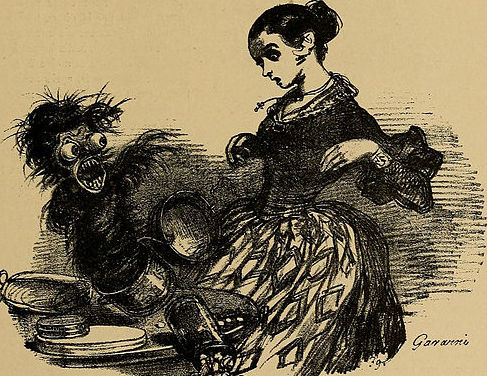English version of L’effet de surprise, ennemi de la communication interculturelle
When a meeting can hide another
A French team that had come to Tokyo to present a project to the Japanese partner told this story to me. As usual, they had sent beforehand an agenda detailing the different points that would be discussed during the meeting.
 On the D-day, the French explained these different points. The Japanese listened politely, expressing neither interest nor disinterest through verbal or body language. The French then ask, “Do you have any questions?” Silence from the Japanese. No questions, no comments. The French leave the meeting with mixed feelings, unable to know if the message had been conveyed, whether there was agreement or disagreement, whether or not additional information was needed.
On the D-day, the French explained these different points. The Japanese listened politely, expressing neither interest nor disinterest through verbal or body language. The French then ask, “Do you have any questions?” Silence from the Japanese. No questions, no comments. The French leave the meeting with mixed feelings, unable to know if the message had been conveyed, whether there was agreement or disagreement, whether or not additional information was needed.
Luckily, they had planned to stay an extra day in Tokyo to discuss another issue with the same partner. Luckily, one of the Japanese executives spoke at the start of the second meeting the next day, and this is how it turned out:
So, yesterday at 8:27 am, you said this… we would like to know this… At 8:34 am, you said this… we would like to know this… At 8:46 am, you said this…. we would like to know this…
And so on and so forth. The Japanese went back over all the points from the previous day’s meeting, very precisely timed, and asked questions about each of them.
What is your added value in the meeting?
The French team did not ask itself this question because it was obvious that the added value of each participant was to present information to the Japanese partner. Thus, it had sent the agenda explaining the points that would be presented, but not revealing them in detail, otherwise what would be the point of traveling to Tokyo?
 What if the added value of each participant was not to present information but rather to discuss it? But it is not because it has been presented that the partners will necessarily discuss it. In the anecdote of the French in Tokyo, the separation of these two dimensions could have been harmful if the French team had gone back to France immediately after the first meeting.
What if the added value of each participant was not to present information but rather to discuss it? But it is not because it has been presented that the partners will necessarily discuss it. In the anecdote of the French in Tokyo, the separation of these two dimensions could have been harmful if the French team had gone back to France immediately after the first meeting.
A Japanese participant in a training session gave the explanation of this phenomenon to me, when I asked him what the purpose of a meeting in Japan was. Here is what he said:
The purpose of a meeting in Japan is to check orally that those invited understood the written information sent beforehand.
In other words, the Japanese tend to send not only the agenda but, if it is not confidential, all the content of their presentation before the meeting. For a simple reason, the Japanese continued:
We have to prepare our questions before the meeting.
If we go back to the anecdote told earlier, the French team followed this process without even meaning to. By having a second meeting with their local partner, they allowed the Japanese to prepare the many questions that their presentation had provoked in them but that they could not ask during the presentation: the surprise effect was indeed too great. Nothing is more stressful for many Japanese than having to improvise a question.
Surprise as a source of stress or pleasure
By definition, a surprise is an unexpected, unforeseen event. It marks a sudden break with a familiar past and contains uncertainty about what is to come. Acting like a gust of wind on a pile of leaves, it forces one to readjust one’s perceptions and put one’s ideas in order. And just as there are pleasant and painful winds, there are good and bad surprises.
Discovering the content of a live presentation inevitably exposes one to many surprises, which are obviously not for the presenter. Of course, the reaction to the surprise depends on the personality of the presenter. But the societal context can also play a role in tilting the balance in favor of fear or pleasure.
Thus, if the Japanese context is marked by a strong aversion to uncertainty, it certainly owes part of this dimension to the fact that the great surprises linked to the environment are often catastrophic (earthquakes, tsunamis, volcanoes, hurricanes). It is not very surprising then that a simple gift wrapped in paper will cause stress: it is literally a surprise, and therefore a box full of uncertainty, which is better opened in private than in front of the person who gave it.

In other contexts, where the ability to improvise a speech, a sense of repartee and appropriateness, attention to life’s hazards, a refusal of routine, a taste for the unexpected, doubt about established certainties, an appreciation of originality or a desire to stand out, the psychological effects of surprise may have a completely different status. Thus, whoever offers me a gift and at the same time reveals what it is about will spoil the effect of surprise, as happened to me with a Korean who handed me a nice package and said in a low voice: “It’s a book.”
In a professional context, some partners are waiting for the content of the meeting to be revealed to them in advance so that they can prepare for it. Communicating the agenda is simply sharing the gift wrap. We will have much more productive exchanges if we have the conditions for them to take place. This requires a bit of humility: instead of trying to put ourselves forward by proudly presenting content that we have produced, let’s put ourselves slightly behind. Let’s share the content beforehand so that our partners can ask us the questions they would never have dared to improvise.
The essential condition? And perhaps the greatest difficulty for French people: to better prepare our meetings.
Quelques suggestions de lecture:
- Intercultural meetings: 10 good practices to reduce misunderstandings
- The French and the demon of theory: 3 stories
- When details are monumental – 4 cross-cultural edifying stories
- Meetings and the Decision-Making Process in Japan: An Interview with Dr. Sagi
- Working with the French: Indians share their experiences
- Cross-cultural Turbulence at Air France-KLM: employees share their experiences


Derniers commentaires